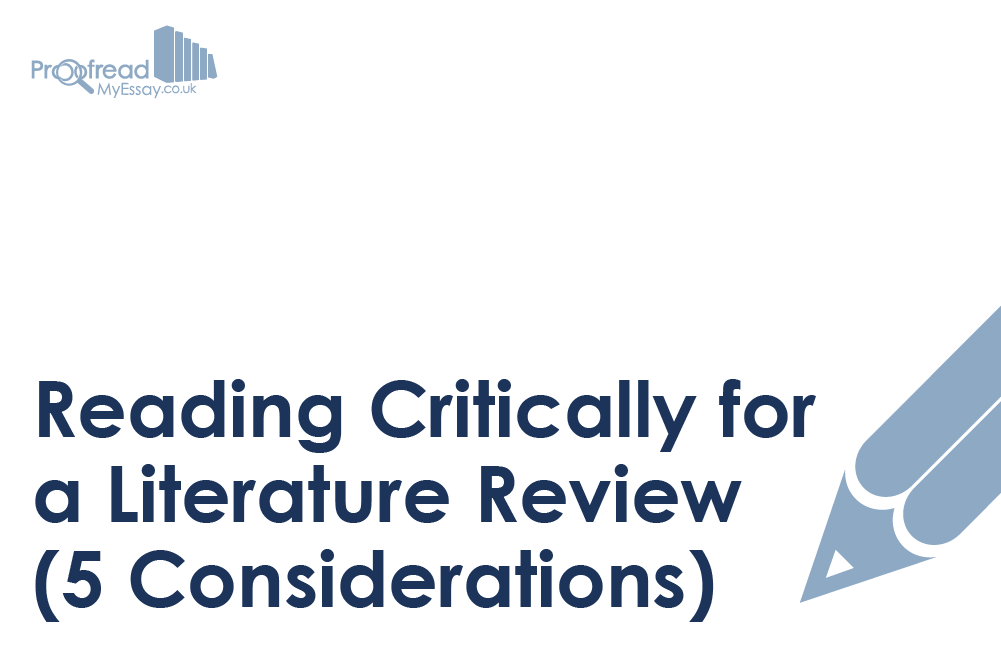The literature review is an essential part of any thesis or dissertation, providing valuable background information related to your work and demonstrating your understanding of the subject.
But writing a good literature review requires more than simply listing and summarising other studies; you need to engage with them critically, considering how they relate to your own work.
Here are some things to consider when reading for a literature review.

1. Strengths and Weaknesses
One thing to remember is that reading ‘critically’ isn’t the same as simply criticising something. Consider the strengths and weaknesses of studies you examine, including how they were conducted and the conclusions drawn.

2. Theoretical Assumptions
Another important factor when reading critically is to bring out any theoretical assumptions made by the authors you’re reviewing.
These assumptions shape a study and can be taken for granted, so understanding the concepts behind research can help you see its significance and how it relates to your work.
3. Methodology and Evidence
A fundamental part of critical reading in a literature review is considering the methodology used in the studies you examine, as well as the strength of the evidence gathered.
Find this useful?
Subscribe to our newsletter and get writing tips from our editors straight to your inbox.
This involves asking various questions: Were the methods used appropriate? What alternatives might there have been? Was the sample size adequate? Has the data gathered been analysed and interpreted correctly? Does it justify the conclusions drawn?

Answering these will help you assess the strength of different studies.
4. Limitations and Biases
No study is free from limitations and bias. This might simply be a matter of application (a study in one country can’t always be applied to other settings) or funding, but it’s vital to identify these all the same.
A good study will set out its own limitations and potential sources of bias in the report, but you might have to think about other things left out by the original researchers.
5. How the Research Relates to Your Own Work
The most important thing when writing a literature review is drawing a connection between the studies you review and your own research. Reading critically therefore involves discussing how past research has influenced your own thinking, as well as summarising the methods and findings.
As well as helping the reader understand the significance of the studies in your literature review, this will help them follow the arguments made in the rest of your dissertation.



